Although Lingoda and Pimsleur share the same objective – to help students learn a new language anywhere at any time – they couldn’t be more different from each other. Pimsleur is one of the pioneers of language self-studying, releasing its first tape in 1963. Meanwhile, Lingoda is the new kid on the block, with a platform that has been connecting students and teachers across the globe since 2014. Of course, these differences reflect in each company’s pricing structure, with one charging you a monthly subscription and the other for the online classes you attend. So, which one will help you achieve your language learning goals the fastest?
| Overview |
Lingoda |
Pimsleur |
| Logo | 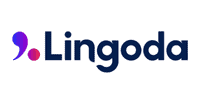 |
 |
| Rating | ||
| Reviews | Reviews | Reviews |
| Visit | Visit Site | Visit Site |
| Free Trial | Free Trial | Free Trial |
| Coupons | Coupons | Coupons |
| Headquarters | Germany | U.S. |
| Founded | 2014 | 1963 |
| Main Features |
Lingoda |
Pimsleur |
| # of Languages | 4 | 51 |
| Languages | ES, DE, FR, EN | ES, FR, DE, JP, IT, CN, RU, PT, EN |
| Placement Test | ||
| Interactive Games | ||
| Audio | ||
| Videos | ||
| Live Tutoring | ||
| Average Duration of Lessons | 60 mins | 30 mins |
| Cultural Context |
| Language Skills |
Lingoda |
Pimsleur |
| Vocabulary | ||
| Grammar | ||
| Writing | ||
| Reading | ||
| Speaking | ||
| Listening |
| Platforms |
Lingoda |
Pimsleur |
| Browser Version | ||
| Windows | ||
| Mac | ||
| Linux | ||
| Android | ||
| iOS |
| Pricing |
Lingoda |
Pimsleur |
| Lowest Price | $6.75/lesson | $14.95/mo |
| Monthly Subscription | $14/lesson |
|
| Quaterly Subscription | $10.30/lesson | |
| Biannual Subscription | $8/lesson | |
| Yearly Subscription | $6.75/lesson | |
| One-Time Purchase | $717 |
|
| Free Trial | 7 days | 1 Lesson |
| Free Version | ||
| Money-Back Guarantee | 7 days |
| Payment Methods |
Lingoda |
Pimsleur |
| Visa | ||
| Mastercard | ||
| American Express | ||
| PayPal | ||
| Wire Transfer | ||
| Discover | ||
| Amazon Payments | ||
| Google Checkout |
| Customer Supporter |
Lingoda |
Pimsleur |
| 24/7 | ||
| Live Chat | ||
| Community | ||
| On Call |
Lingoda
 Although Lingoda offers a limited course portfolio (Spanish, German, French, and English), it makes up for that by allowing you to connect with qualified teachers from all over the world. This means that you can attend online classes whenever and wherever you want and have certified teachers helping you achieve your learning objectives. Moreover, the company provides CEFR certificates after completion that you can use when looking for a job.
Although Lingoda offers a limited course portfolio (Spanish, German, French, and English), it makes up for that by allowing you to connect with qualified teachers from all over the world. This means that you can attend online classes whenever and wherever you want and have certified teachers helping you achieve your learning objectives. Moreover, the company provides CEFR certificates after completion that you can use when looking for a job.
Before starting your course, Lingoda prompts you to take a placement test, which is perfect for anyone who already knows the basics. Teachers will also provide all types of exercises, with classes conducted in your target language. This allows you to practice your speaking skills right off the bat – essential when learning a new language.
Prices are subscription-based, and there’s a plan for everyone. While the Walk plan is perfect for people who prefer a monthly subscription, Marathon is designed for students who want to commit to a longer studying period with the added benefit of a nice discount. Finally, the Sprint plan is for anyone who wants to learn a new language quickly. It’s a challenge, but if you’re able to attend a daily class for 90 straight days, Lingoda offers a full refund. All subscriptions also come with a 7-day free trial and a 7-day money-back guarantee, allowing you to test the service for 14 days with no strings attached.
Pimsleur
 Pimsleur was one of the first companies to provide studying exercises for people to learn a new language by themselves. What began as prerecorded tapes has now been replaced by an intuitive platform you can use either on desktop or mobile. The company offers over 50 language courses, making it the perfect solution for anyone who wants to learn an uncommon language.
Pimsleur was one of the first companies to provide studying exercises for people to learn a new language by themselves. What began as prerecorded tapes has now been replaced by an intuitive platform you can use either on desktop or mobile. The company offers over 50 language courses, making it the perfect solution for anyone who wants to learn an uncommon language.
All courses are built by taking each language into account. In other words, the way Pimsleur teaches Japanese is very different from how it teaches Spanish. That being said, classes follow the same structure by focusing on listening and speaking. You always start with a 30-minute audio class, and then you can review the content through reading and listening exercises or flashcards. Unfortunately, the platform doesn’t offer grammar exercises and while it invites you to repeat phrases, it doesn’t come with built-in speech recognition software.
Pricing-wise, Pimsleur offers various options. You can either get an audio-only version or access to the digital platform. For the former, Pimsleur provides two options: either get each level for $119.95 (with 30 classes) or purchase a bundle with all five levels for $550. Alternatively, Pimsleur’s digital platform (including all reviewing exercises) is only available through a monthly subscription that costs $19.95.
Conclusion
Since Lingoda and Pimsleur are so different, it’s easy to decide which one works best for you. If you prefer to have a tutor helping you along the way, then Lingoda is the one for you. On the other hand, if you prefer having a self-studying mechanism, Pimsleur is the one to get. Of course, this impacts your studying experience in various ways. You can pause Pimsleur lessons whenever you want, but not with Lingoda as you need to pay attention to the online class for one hour. This means that Pimsleur is better suited to be used while multitasking or commuting. Meanwhile, Lingoda offers greater support for those who want to achieve high fluency levels, as Pimsleur lacks some fundamental exercises. If you aren’t sure which teaching method is best for you, we highly recommend trying both platforms before committing to a purchase. Because Lingoda offers a 7-day free trial and Pimsleur allows you to try one free class, you can test everything out with no strings attached.
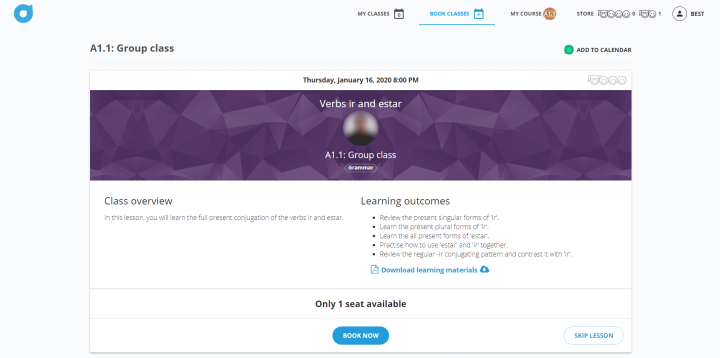
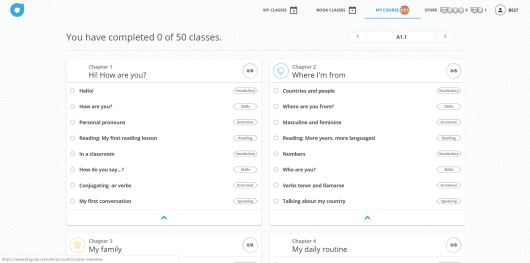
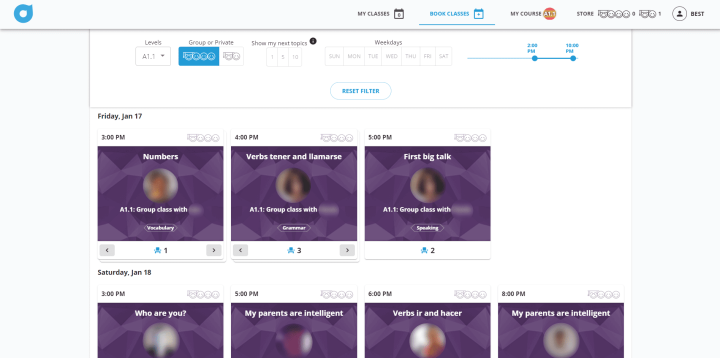
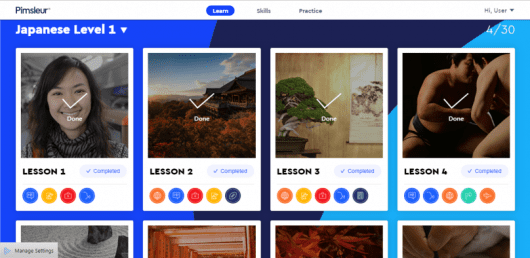
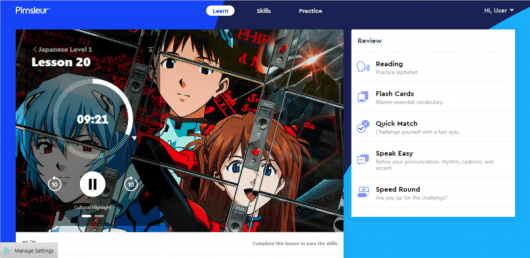
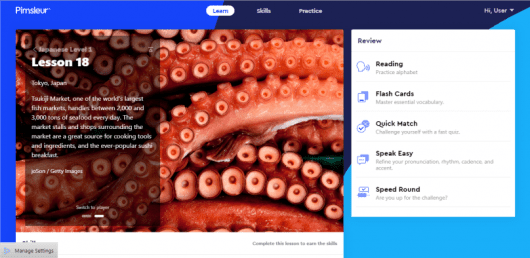
Share Your Comment